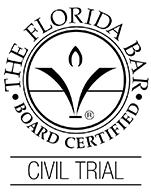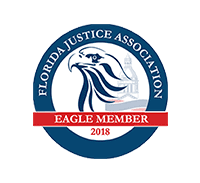Common motorcycle accident injuries include severe head injuries, road rash, whiplash, and broken bones. Unfortunately, motorcycle crashes are typically more devastating to riders and their passengers than those involving other motor vehicles because motorcycles lack the enclosure and safety features of cars and trucks. Therefore, it is unsurprising there is also a greater risk of death. Our Lakeland motorcycle accident lawyers have compiled a detailed list of the most common injuries.
What Are The Most Common Motorcycle Accident Injuries?
Riding a motorcycle risks suffering severe injuries if you are in an accident. These injuries often result in costly medical bills, substantial lost income, and diminished quality of life. Unfortunately, some bikers die from their injuries.
The most common motorcycle accident injuries include the following:
- Head injuries: Wearing a helmet can prevent head injuries. However, Florida law does not require bikers over 21 to wear protective headgear. Thus, some motorcyclists ride without one. Head injuries include traumatic brain injuries such as concussion, hematomas, penetration by an object, and skull fractures. You could experience symptoms such as headache, bleeding, confusion, and memory loss—and those symptoms may not manifest right away.
- Spinal cord injuries: Your body is exposed while riding a motorcycle. Therefore, a sudden impact on your spinal column could damage your spinal cord, resulting in partial or complete paralysis. In addition, you could experience numbness or tingling that progressively worsens.
- Road rash: At high speeds, being thrown from a motorcycle could send you skidding down the road. During this time, the pavement could shred your clothes and skin, resulting in a minor or severe abrasion. Moreover, you could suffer nerve damage or develop an infection.
- Neck injuries: The most common neck injury you could suffer is whiplash— when your head suddenly and violently snaps forward and backward. You could break your neck, which could take months or years to heal completely.
- Facial injuries: Wearing a helmet that adequately protects your head and face can prevent facial injuries such as cuts, bruises, and more severe injuries such as disfigurement and broken bones. Reconstructive surgery may be necessary to restore your appearance.
- Internal injuries: The handles and dash of your motorcycle could impact your abdomen and chest cavity, resulting in internal bleeding and organ damage that requires surgery to repair.
- Burns: Motorcycles and other vehicles require gas. Thus, an accident could result in a fire, resulting in first-, second-, or third-degree burns throughout your body, which could take extensive time to heal and leave scars and disfigurement.
- Amputation: You could have an injury so severe that your surgeon has no choice but to amputate an arm or a foot. An amputation is a disability that could permanently render you unable to work.
- Broken bones: Any motorcycle crash could result in crush injuries such as broken arms, legs, pelvis, ribs, and skull.
- Muscle injury: Muscles are tough, but a motorcycle accident can cause severe muscle injuries such as sprains, tears, or bruises. A road rash could also cause substantial muscle damage.
Not all injuries are entirely preventable. In addition, the extent of your injuries will depend on the severity of the accident. However, the Centers for Disease Control and Prevention (CDC) offers safety tips such as wearing protective gear (e.g., a helmet) that can make a difference.
What Should You Do After a Motorcycle Accident?
Taking the following steps after a motorcycle crash could save your life and begin the process of building a personal injury case for compensation if negligence by another driver caused the accident.
Find a Safe Space
It’s essential to find a safe spot to wait for help to arrive if you can move after an accident. Doing so can prevent additional injury or death due to other traffic and potential fires.
Call Emergency Responders
Call 911 to have police and medical personnel respond to the crash. The police will investigate the accident and draft a report that you can request for your records.
Seek Medical Treatment
You should seek a check-up by emergency medical technicians (EMTs) on the scene and see your doctor for additional tests to check for injuries that may not have presented symptoms yet. Your physician could find latent injuries they can treat and document in your medical records.
Gather Evidence
You can begin gathering evidence to support a personal injury case or your insurance claim by taking photographs of the accident scene and your injuries, requesting the police report, and collecting contact information from witnesses.
File an Insurance Claim
You should file a claim with your insurance provider and the liable party’s insurer to receive compensation for your injuries and subsequent expenses.
Consult a Motorcycle Accident Lawyer
A personal injury lawyer from our firm will provide you with options to consider during a free consultation. We will investigate the accident to determine liability, then decide which damages you could seek and calculate the value of your case. Finally, a motorcycle accident attorney from our firm will negotiate a settlement on your behalf and file a lawsuit if necessary.
Learn More About Motorcycle Accident Injuries Today
A motorcycle accident lawyer from Dismuke Law works on contingency, so you only pay us if we win your case. We will protect your rights and meet the statute of limitations in your case, preserving your right to recover compensation by taking the liable party to court.
You have the right to file a lawsuit and seek justice and accountability for your motorcycle accident injuries. We will fight for you so you can regain a sense of normalcy in your life and move forward. So, don’t hesitate to contact our Central Florida team today to schedule a free consultation or learn more about common motorcycle accident injuries.


![cftla-member[2]](https://www.1800askdave.com/wp-content/uploads/2022/03/cftla-member2.png)
![cftla-member[3]](https://www.1800askdave.com/wp-content/uploads/2022/03/cftla-member3.png)










